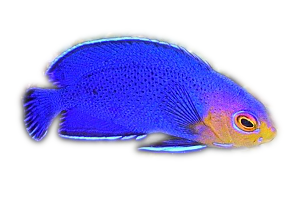
By Bob Goemans

Reader note - Space here does not allow for my entire answer, and it has taken about twenty more letters to resolve all issues.
Hi Bob,
I am a relative new comer to the hobby and am having a problem with red algae. Could you suggest some sites or people I could communicate with to try and find a solution.
Regards
Alan Kirkwood
Chief Technician
BRR
Hugh Robson Building
10 George Square
Edinburgh
EH8 9XD
The University of Edinburgh
Scotland
Hi Alan,
I can help, but need more info. Tell me about your aquarium, and what this red algae looks like. If possible, a photo would help.
Regards
Bob
Hi Bob,
Thanks for getting back to me. I'm relatively new at the Marine game, but have kept tropical for 20 + years. The tank 540 litres with a live rock sump of approx 70 litres. Live rock was 3 - 4 years old when introduced when rescued from a well-established tank.
Two metal halide lamps - on at 0800 -1200 and then on again at 1400 - 2000. Main reason for that is the tank is well lit with natural daylight between those two timeframes and I thought reduced lighting might help the problem.
Protein skimmer
U.V. light steriliser fitted in tank return flow.
Mini reef system with several small leather and hard corals.
Stock
2 Blue Damsels
1 Clown
1 Regal Tang
2 assorted Butterfly
3 Anthias
1 Angel
3 Blennies
Clean up Crew
2 Cleaner shrimp
4 Peppermint shrimp
6 Hermit crabs
3 Emerald Crabs
36 snails
2 starfish
5 urchins.
All livestock are juveniles and there is very little aggression evident and all appear well and content. Feed a frozen mixture with dry flakes twice a day at 0800 and 1900. All current test results (done on a weekly basis) are either negative or well within acceptable limits.
These are pH 8.0 - 8.5; Nitrate; Nitrite; Phosphate; Salinity is 1022 - 1024, Magnesium and calcium are now at the top end of normal range after a sudden blip which I corrected slowly over a week with regular additions.
I am plagued with red algae, which starts with one or two patches dotted around the tank and then rapidly forms a thick maroon coloured carpet over the live rock. I am at the moment siphoning off the algae weekly with a 5% water change. This algae looks unsightly and although it doesn't appear to upset the balance of things I'd really appreciate some advice on how to get rid of it.
Regards
Alan
Hi Alan,
This was helpful as there are many different species of 'red' algae. But what you have is not a true alga, but more a bacteria commonly called cyanobacteria (cyano). It's a fairly common problem with many aquarists who allow their systems to become somewhat nutrient rich.
Reducing the photoperiod is not the way to resolve 'any' unwanted algae/cyano problem in a system containing photosynthesizing corals, as the cause of unwanted alga/cyano are mostly that of excessive phosphate, nitrate, and ammonium (nutrients) along with poor water movement, all of which come from any of the following or combination of items - overfeeding, overcrowding, poor aquarium maintenance, poor protein skimming, poor water flow, and aged lamps/wrong spectrum.
Since your 125 gallon aquarium does not appear to be overcrowded, and I do not have exact lamp parameters (brand/wattage/Kelvin/distance above water surface), brand or model of protein skimmer, or 'exact' water quality parameters (you might think them OK or within 'range,' but possibly not me - as your specific gravity should be maintained at 1.024 - 25, pH at 8.0 - 8.3), phosphate <0.015 mg/l, nitrate <15 mg/l, nitrite 0 mg/l, alk 2.0 - 3.0 meq/l, calcium 380 - 430 mg/l, and Mg 1300 mg/l), along with water pump sizes/water movement amounts, etc., it would seem from your letter that overfeeding and/or incorrect food types are to blame for this cyano problem.
Could well be by improving water movement and skimmer performance, and reducing the amount of food fed (would be helpful to know exactly what is fed and how much), it will help curb the cyano problem. Furthermore, if at all possible, try to obtain a product called 'Chemi-Clean' made by Boyd Enterprises. I understand its chemistry and if used as directed, would quickly dispense with your cyano problem. Thereafter, use as needed, however, when the product is used up try putting one heaping tablespoon of 'brown' sugar into the sump once a month, as it will also help limit/shunt the growth of any cyano. Also, where possible, siphon excessive mat-like amounts out of the aquarium.
Hope this helps,
Bob